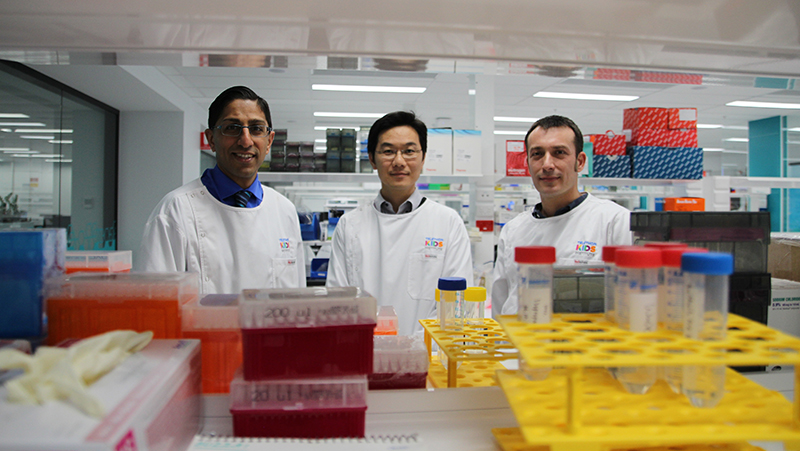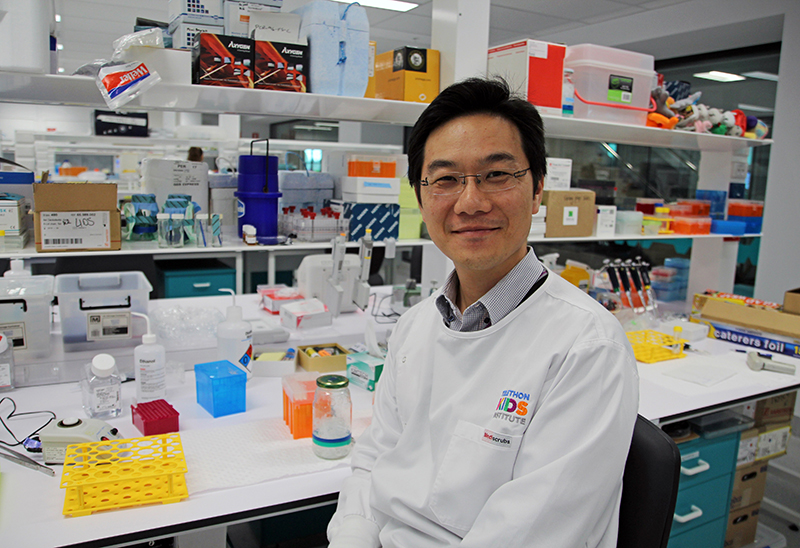Search
Aberrant expression of the TLX1/HOX11 proto-oncogene is associated with a significant subset of T-cell acute lymphoblastic leukemias...
We examined the baseline profile of a panel of T-ALL cell lines to determine factors that contribute to GC resistance without prior drug selection.

Kids born with Down syndrome are at high risk of an array of health problems. One of the lesser-known complications is their increased risk of childhood leukaemia.

Dr Laurence Cheung is doing everything he can to end the threat of childhood leukemia. His research has the potential to change countless lives, but he also has another important job – being a dad to three beautiful children.
This study utilized in vitro, in vivo and clinical data to evaluate the palatability of a novel midazolam chocolate tablet.
latent neural precursor cells remain present in the neurogenic niche of the adult hippocampus up to 8 weeks following high-dose total body irradiation
Identified romidepsin as a promising therapeutic for mixed lineage leukemia (MLL)-rearranged infant acute lymphoblastic leukemia
GATA3low ETP-ALL is a novel stem cell-like leukemia with implications for the use of myeloid-derived therapies
The trivalent inactivated influenza vaccine is safe, immunogenic, provides clinical protection and should be administered annually to immunosuppressed children receiving treatment for cancer
In this study, we report the case of an adolescent NMC patient presenting with severe facial pain, proptosis and visual impairment due to a mass arising from...
